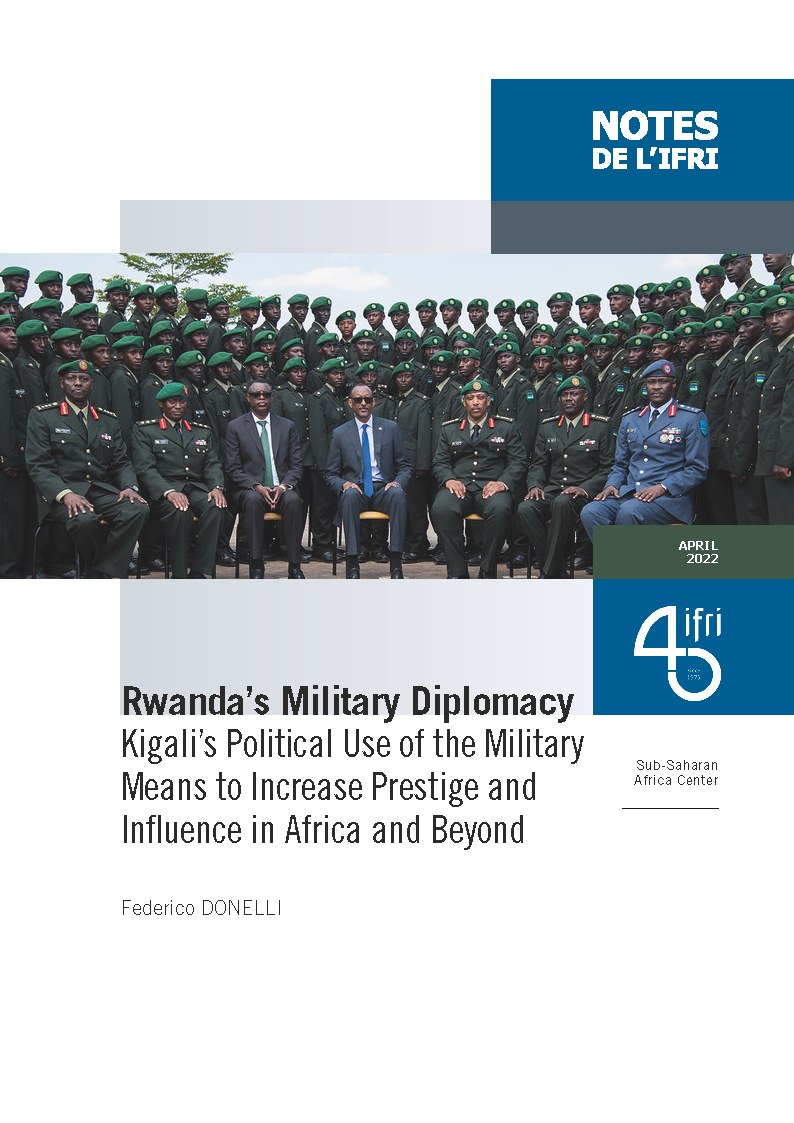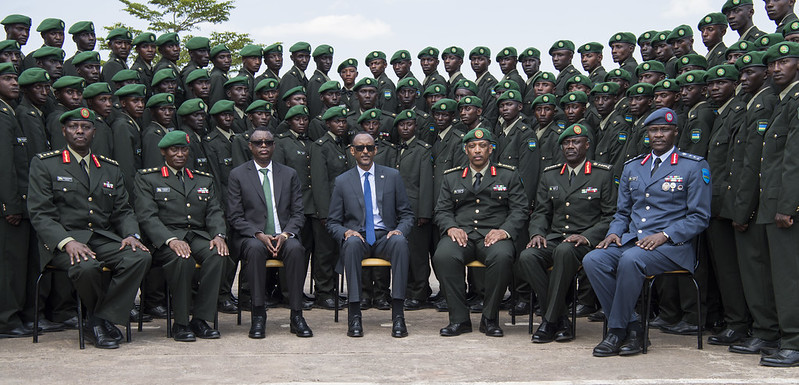Rwanda’s Military Diplomacy. Kigali’s Political Use of the Military Means to Increase Prestige and Influence in Africa and Beyond

Although it is one of the smallest states on the African continent, Rwanda has adopted a proactive foreign policy. Kigali has deployed troops within the framework of multilateral peacekeeping missions to increase its prestige and influence. Since last year, changes have arisen: Rwanda has extended its activities outside of multilateral operations, intervening unilaterally in the Central African Republic (CAR) and then in Mozambique. Rwanda desires to foster its reputation as a regional and continental “security provider”.

Rwanda’s leadership, led by President Paul Kagame, has used its seasoned and professional armed forces as a tool to (re)enhance its regional and international standing. The contribution offered by Rwanda to multilateral operations sanctioned by the United Nations (UN) and the African Union (AU) on the continent and beyond has generated a favorable response – one that has helped tamp down criticism of Kagame’s authoritarian rule and Rwandan military involvement in the neighboring Democratic Republic of Congo (DRC). The dispatch of Rwandan troops on a bilateral basis, beginning in 2020, to two African states highlights significant changes to Kigali’s modus operandi as it broadens its military operations beyond the multilateral framework. Rwanda’s actions, first, in the Central African Republic (CAR) and then Mozambique’s Cabo Delgado province offer useful primers on the future design of Rwanda’s foreign policy. They also, as importantly, point to what may become significant shifts in the ways conflict management and peacebuilding are prosecuted in Sub-Saharan Africa. Further, Rwanda’s political use of military tools is a fascinating example of African military diplomacy.
Since the 1994 genocide, Kagame’s aim has been to rebuild a stable and strong state. Implementing a military diplomacy approach has been possible thanks to the skills shown in different scenarios of intervention by its army: the Rwanda Defence Forces (RDF). Since 2005, the RDF’s deployments mean that it has come to be viewed by African and international bodies as a reliable force for peacekeeping. But Kagame’s recent decisions to send contingents to both the CAR and Mozambique demonstrate that he sees the RDF as something of a new African security provider for the continent. Therefore, Rwanda has exploited the capabilities of its military apparatus as a political tool to gain greater international visibility and continental influence.
Its success against violent non-state armed actors has not only generated a great deal of positive press but has resulted in Rwanda strengthening its political and economic ties with the other African states. At the same time, Kigali has become a trustworthy interlocutor for external states such as France. The Rwandan regime aspires to promote “a Rwandan military solution to security problems” as an alternative to the architecture promoted by regional and continental organizations.
What is the rationale behind Kigali’s move? What are its purposes? And how does Rwanda intend to capitalize on the means of military diplomacy? The analysis explores Rwandan policy by seeking to understand its real potential and investigating the implications of Kigali’s military diplomacy for the African security architecture.
This analysis is organized into four sections. The first part discusses Rwanda’s politico-military trajectory following the 1994 Rwanda Genocide. The second section explores the recent shift in the Rwandan approach to armed conflicts in sub-Saharan African states. The RDF’s actions in Mozambique’s Cabo Delgado province and their success against armed insurgents are explored in greater depth in the report’s third section. The conclusion provides analysis about Rwanda’s pro-active use of its military in extra-regional states and what the implications may become at the regional, continental, and extra-continental levels.

Available in:
Regions and themes
ISBN / ISSN
Share
Download the full analysis
This page contains only a summary of our work. If you would like to have access to all the information from our research on the subject, you can download the full version in PDF format.
Rwanda’s Military Diplomacy. Kigali’s Political Use of the Military Means to Increase Prestige and Influence in Africa and Beyond
Related centers and programs
Discover our other research centers and programsFind out more
Discover all our analysesGabon: Has an — Almost — Exemplary Transition Produced a New Political Model?
In two rounds of voting, on September 27 and October 11, 2025, the citizens of Gabon elected the members of both their local councils and the new national assembly. This marked almost the final stage of political transition, little more than two years after the coup d’état that had overthrown the more than five decades old dynastic regime of the Bongos — Omar, the father, who died in office in 2009, and then his son Ali, who is now in exile.
Claiming "The People": Youth Booms, Ailing Authoritarians and "Populist" Politics in Kenya, Uganda, and Tanzania
This study analyses the emergence of so-called “populist” political tendencies in three East African countries: Kenya, Uganda and Tanzania. It builds its analysis on a wider discussion of the term “populism”, its use and applicability in (eastern) African settings before going on to examine the drivers of three cases of populism: William Ruto’s 2022 election victory in Kenya and the “Hustler Nation”; Bobi Wine’s opposition to Yoweri Museveni in Uganda; and John Magufuli highly personal style of government in Tanzania.
The Contradictory Impacts of Western Sanctions on Economic Relations between Russia and Sub-Saharan Africa
How does Russia maintain economic ties with Africa despite Western sanctions? An analysis of investments, trade, and the circumvention strategies deployed by Moscow.
The Revenue Sources Sustaining Sudan’s Civil War. Lessons for the year 2023
Wars require money and resources, and often, most conflicts involve controlling sources of income and supply lines or denying them to enemies. This has been the case in Sudan’s past conflicts and is again as the civil war—between the Sudan Armed Forces (SAF), commanded by General Abdelfattah al-Burhan, and the paramilitary Rapid Support Forces (RSF), commanded by General Mohammed Hamdan Daglo “Hemedti” —has sunk into a protracted conflict.









